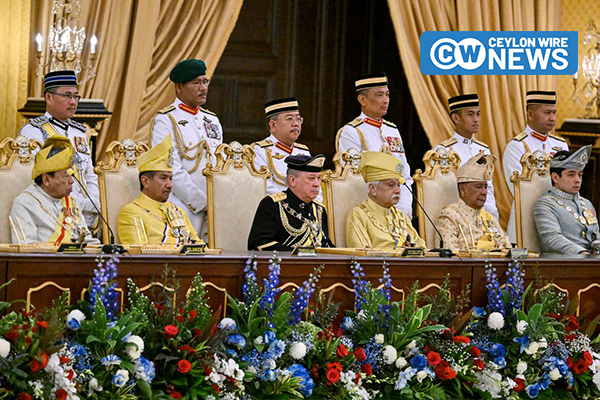Sultan Ibrahim, the affluent and outspoken ruler of Malaysia’s southern Johor state, was sworn in as the country’s new king in a ceremony held on Wednesday. Malaysia follows a distinctive rotational monarchy system, where the heads of the nation’s nine royal families take turns serving as the king for a five-year term.
While the monarchy traditionally holds a ceremonial role, it has gained increased influence in recent years due to prolonged political instability, during which the king has exercised rarely used discretionary powers.
Installation of the King: Malaysia’s constitutional monarchy comprises nine states led by traditional ethnic Malay rulers, commonly known as sultans, in one of the world’s largest monarchy systems. Every five years, these nine rulers elect one among themselves to be Malaysia’s king through a secret ballot.
Originally determined by seniority based on their ruling tenure, the rotation order among the sultans was later modified to a sequential system after each royal family completed a term.
Profile of Malaysia’s New King, Sultan Ibrahim: Sultan Ibrahim, aged 65, hails from the southern state of Johor, tracing its sultanate back to the 16th century. Despite the monarchy’s perceived separation from politics, Sultan Ibrahim is known for expressing his views on governance and maintains a positive relationship with the prime minister.
The sultan possesses a substantial collection of luxury cars and motorbikes and is involved in diverse business ventures, ranging from real estate to mining. One of his enterprises collaborates with Chinese property developer Country Garden to develop the ambitious $100-billion Forest City project in Johor.
Sultan Ibrahim has advocated for a special economic zone between Johor and neighboring Singapore to enhance bilateral ties. Additionally, he expressed intentions to revive a stalled high-speed rail project between Malaysia and Singapore.
Johor remains the only sultanate permitted to maintain its private army, a historical agreement dating back to its inclusion in the Federation of Malaya before Malaysia gained independence in 1957.
Powers of the King: The monarch primarily assumes a ceremonial role and serves as the custodian of Islam in the predominantly Muslim country. The federal constitution mandates the king to act upon the advice of the prime minister and cabinet, with few exceptions.
While the king can appoint a prime minister with parliamentary majority, this power was rarely used until 2020. Recent political developments have necessitated a more active role for the monarchy, with Sultan Ibrahim’s predecessor appointing the last three prime ministers, including Anwar in 2022 after a hung parliament.
The king also holds the authority to pardon convicted individuals. Notably, in 2018, Sultan Muhammad V pardoned Anwar, who was imprisoned on charges he asserted were politically motivated. Former Prime Minister Najib Razak, currently serving a jail term related to a 1MDB-linked graft conviction, has applied for a royal pardon, the consideration of which remains uncertain under the new king.
Source: Reuters









